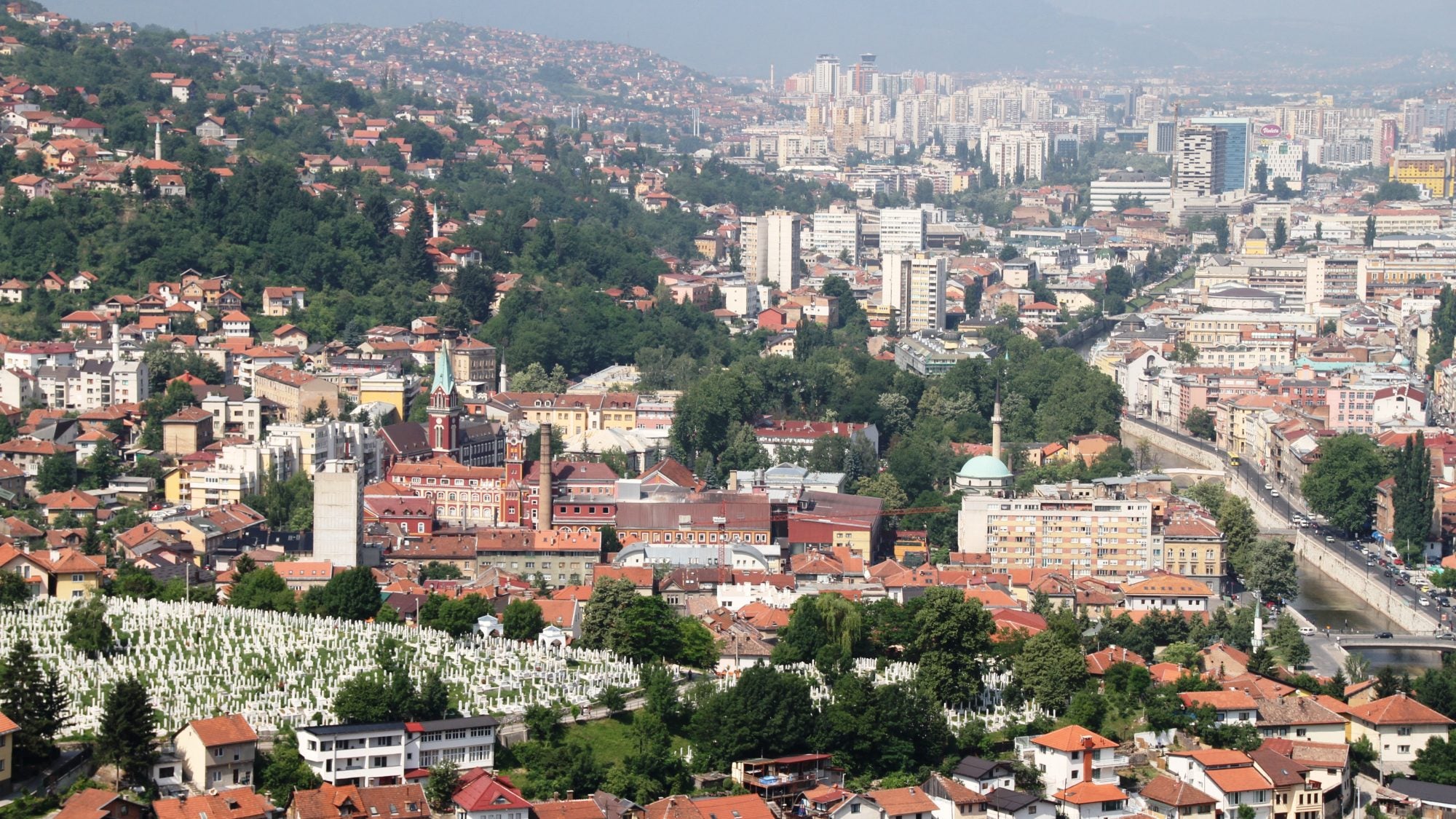
Title: No Future for Bosnia without the International Community
As Angelina Jolie travels to the Bosnian capital, Sarajevo, for the regional premier of her film, In the Land of Blood and Honey, she will be drawing attention to a country that has experienced growing disinterest from the international community. Two decades since the start of the 1992-95 war, Bosnia is no longer deemed a ‘hot spot’ or popular destination for humanitarian and development organizations. NATO and the Stabilization Force in Bosnia and Herzegovina (SFOR) are long gone, and NGOs are slowly pulling out from the former war zone and site of mass atrocities.
With seemingly more important countries such as Libya, Afghanistan, Pakistan and numerous African states mired in conflict, it is understandable why NGOs are packing up and moving on. Yet there is much unfinished business in Bosnia and Herzegovina. It is slightly ironic that the international community which brought a cessation to the violence in the 90s, but also created the power-sharing structures which now impede progress, is ready to call it quits. The international community seems to suffer from historical amnesia once again.
Politically, Bosnia has been at a stalemate. One day before the New Year and 15 months after elections, Bosnian politicians finally formed a government, falling short of the Belgian record for the most days without a government, but exceeding the previous record set by the Iraqis.
The long absence of a government, during which time no decisions could be made or budgets created, resulted in numerous gaping holes in policies and provisions for the Bosnian state and its people. Yet the formation of the new government has made little difference. The state seems to function, or more accurately “malfunction,” similarly with or without a ruling body.
In addition, Republika Srpska (RS), one of the two main political entities of Bosnia and Herzegovina, is constantly undermining the work of the Bosnian-Croat Federation, threatening the state with calls of secession. Meanwhile, Croats are asking for their own autonomy in the region of Herzegovina. Most of the nationalist Serb and Croat politicians are hungry to carve up the Bosnian pie, not realizing that keeping it whole might be more satisfying. The international community and the key player in Bosnian political affairs—the Office of the High Representative (OHR)—claims that they would never support secession, yet they have not taken a stern stance against fracturing. All of these problems are rising to the forefront at a time when the European Union crisis threatens Bosnian stability both fiscally and politically. Bosnia, though chronically unstable but stably in recession, faces a harsh year ahead and an impending collapse of its pension system.
It is imperative that the international community focuses on Bosnia and Herzegovina once again if Europe does not wish to see a ‘failed’ state on its continent. The entire system in Bosnia must be overturned and the constitution, set out by the Dayton Peace Accords, must be overhauled.
There are two ways of achieving this change. The first is via nonviolent revolution as seen in some of the Arab Spring movements. The second and unfortunately more likely scenario is a violent conflict. Dayton is unable to adapt to the demands of a functioning society and government, for it was not designed with mechanisms for reform. Instead, it must undergo a revolutionary reversal.
However, a third option still exists. The international community can go beyond monitoring the situation by intervening and fixing the mess it created. If it could impose a solution and agreement in 1995, it can impose a solution now by pushing for reform, bolstering civil society, supporting Bosnia’s membership in NATO, and using the OHR office, along with increased troops, to smoothly implement reforms. While this suggestion goes against everything I have been taught and in turn preached in the Conflict Resolution program at Georgetown University (including an emphasis on local solutions, stakeholder input, and participatory peace-building) some countries need more guidance and prescriptions to cure their ailments.
Certainly a participatory or “elicitive” approach is best in most cases, but for Bosnia it will not work and it has not worked so far. Left to their own devices, Bosnian politicians cannot and will not agree on anything. Meanwhile, the Bosnian people are either constantly manipulated by the ultra-nationalist politicians or are so insidiously apathetic that they prefer to sit and complain all day rather than taking action.
Consociationalism, a form of government that guarantees group representation, has not proven to work anywhere, yet the international community repeatedly turns to it as the policy of choice for ‘divided societies.’ Alas, the way out of Bosnia’s ineffective power-sharing arrangement must be drastic. If the international community does not want war in the Balkans again, it should press for reforms and set an ultimatum for the Bosnian government—either the road to democracy or the highway. The highway does not lead to the European Union, nor does it offer economic benefits. Surely, it is a lonely path, and one that Bosnia cannot afford to take.
. . .
Vedrana Durakovic is a native of Bosnia and 2011 graduate of Georgetown University’s M.A. in Conflict Resolution program.
Image credit: Bjoertvedt, CC BY-SA 3.0, via Wikimedia Commons
This is an archived article. While every effort is made to conserve hyperlinks and information, GJIA’s archived content sources online content between 2011 – 2019 which may no longer be accessible or correct.
Recommended Articles

We in the United States have long held one narrative of the Middle East—one of political instability, sectarian unrest, and oligarchs protecting great wealth in the hands of way too…

When the Georgetown Journal of International Affairs launched this online edition, I suggested that it address “human rights and human dignity.” Why dignity? As Anthony Clark Arend and I explore…

Georgetown professor Matthew Kroenig sat down with the Georgetown Journal of International Affairs to discuss his attendance at a recent meeting with Iranian President Hassan Rouhani in New York.